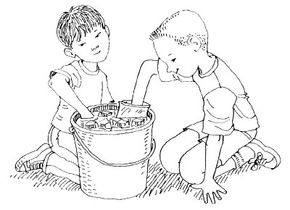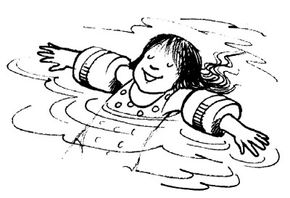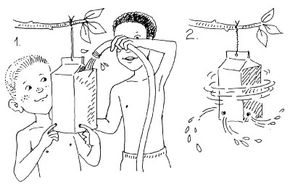Kids love to play with water in the summertime, and with good reason: The weather gets terribly hot, and water games and activities are a fun way to cool down. The summer water activities for kids in this article are sure to satisfy kids' hunger for fun in the sun.
Water activities aren't just fun. They can also be a useful teaching tool, whether it's a lesson on flotation devices or a look at how arctic animals stay warm in subzero temperatures.
Advertisement
Get started on your way to having some cool summertime fun!
See how long you can keep a water balloon on a sheet, then try to break that record.
Water Balloon Launcher Activity
Launch yourself into some good old fashioned water fun with this watery catapult.
Personal Flotation Device Activity
Do you own or have access to a life jacket? Learn how it works in this informative exercise.
Milk Carton Waterwheel Activity
This fun milk activity is easy to make, and guaranteed to keep you cool.
Have you ever wondered how animals in the Arctic stay warm? Try this blubber bags activity and see firsthand.
Water balloons get the trampoline treatment in the activity on the next page. Keep reading and find out more!
For more fun activities and crafts, try:
- Wading Pool Activities
- Summer Crafts
- Kids Crafts
- Kids Activities
Advertisement



